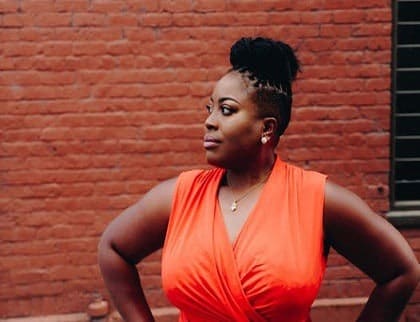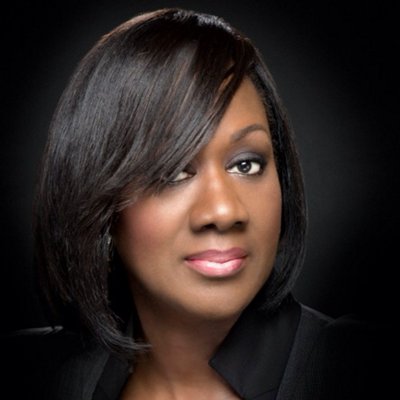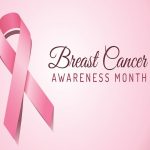When last were you screened for Breast Cancer? October is “Breast Cancer Awareness Month,” an annual campaign to increase awareness of this dreaded and devastating disease. It provides an opportunity for us all to focus on this dreaded disease and its impact. Breast cancer is becoming more and more prevalent in Nigeria. According to the World Health Organisation (WHO) estimates, “over 100,000 Nigerians are diagnosed with cancer every year; about 80,000 die from the disease. Nigeria’s cancer death ratio of 4 in 5 affected persons is one of the worst in the world.”

[10 Estate Planning Mistakes To Avoid]
Sadly, in spite of the increased awareness, many women still neglect to actually take the necessary steps to try to detect breast cancer in its early stages, when there is a far greater chance of survival. In our society, it is seen as a taboo to even consider the possibility that one could become really ill let alone the fact that one could die; it is often seen as tempting fate.
Here is what happened to the Johnsons. In July 2017, The Johnson’s were celebrating their first son’s graduation. Deji graduated with a 2 nd Class Upper degree and was proceeding for his NYSC. Their daughter Ella had just completed her A Level examinations with a string of A Grades. She gained admission into an excellent private university. Their youngest Tolu, recently won a 50% scholarship to an outstanding school.
A year ago, Lydia Johnson walked out of a well-paying job in anger as she had missed an “expected” promotion. She had a side fashion business and decided to focus on it full-time. This wasn’t ideal for the family as it was very useful having at least one steady income whilst her husband built his architecture practice.

[Fathers and Money Matters – Is Your Family Financially Secure?
Gboyega Johnson’s business had gone through a really bad patch and was just beginning to come out of it. Things were beginning to look up, but their rent and school fees expenses put a huge strain on an already stretched family budget.
Lydia was quite meticulous about checking her breast for any changes so her heart sank when during a routine check in September, she felt something wasn’t quite right; there was definitely a lump that wasn’t there before. She visited their family doctor the same day and he referred them to the Teaching Hospital. A biopsy confirmed that Lydia had an aggressive Stage 3 breast cancer.
Lydia had surgery to remove the lump at a cost of N200,000, and she is now receiving treatment including chemotherapy which is costing the family 260,000 each month. She will need six sessions in the first instance. She will require a second operation in due course, followed by radiotherapy for which a down-payment of N250,000 is required. The treatment costs run into millions of Naira.

[Motherhood and Money Matters]
Beyond this, she was told that she will require treatment for at least five years for ultrasound scans, blood tests, kidney and liver function tests, chest x-rays, and so on; some of these will have to be repeated. She and Gboyega have also been told that a mastectomy cannot be ruled out, but she is very reluctant about losing her breast.
The Johnsons had kept putting off plans for family insurance so there was nothing to fall back on. Members of the extended family rallied round as best they could but the exorbitant costs kept mounting and after a time, the sums they were able to give dwindled significantly. Gboyega had to put the land they had purchased to build their first home up for sale to release badly needed funds to try to save her life. With rent due and no funds left, the family moved in with Lydia’s parents so that they could at least save money to help with the medical bills.
How healthy are you? If you or anyone in your family were to ever become gravely ill, could you cope financially? Could you afford the best medical treatment available? Do you have health insurance in place?
Health insurance covers some of the cost of treating the insured person’s illnesses or injuries. You pay the premiums to purchase coverage and the insurer is obliged to pay some or all of your healthcare costs, based on the terms of your contract. Some policies pay for preventive care, such as annual checkups and diagnostic tests.

At some point in time, you might need to call upon some form of insurance. Whilst insurance will not eliminate the risk of loss or damage to property, injury, illness or death, it does relieve the insured of at least some of financial losses these risks bring. The cost of coverage of all these scenarios is far lower than if you were to have to service them if they do indeed arise.
Critical illness cover is a relatively recent addition to the life insurance industry. It was never intended to replace health, life or disability insurance. Instead, its purpose is to fill the gap in existing medical insurance coverage to pay for illness and specific kinds of treatment not ordinarily covered by traditional insurance. Generally, critical illness insurance pays a lump sum on diagnosis of a serious illness. It may cover hospital charges, an Intensive Care Unit stay, organ transplants, ambulance fees, or transportation and lodging.
Ideally a policy should cover doctor appointments, mammograms, chemotherapy, mastectomy, and breast reconstructive procedures. A comprehensive health insurance policy will give you a higher chance of overcoming breast cancer with early detection through regular mammograms and clinical breast exams.
Far too many people are like the Johnsons; they totally ignore the need for insurance until a major mishap or setback occurs; it is only then that the impact of inadequate insurance coverage is glaring. No matter how meticulous you are with your finances, failure to purchase adequate insurance can impair your financial future and put you or your loved ones in a desperate situation in an instant. A cancer diagnosis can be devastating, but equally so is not having the means to pay for it. The truth is one nasty illness such as breast cancer can decimate a lifetime of savings and investing.
We all pray for good health. No one wants to prepare to get sick, but it is important to be realistic and proactive. Whilst you can’t plan for cancer, you can be prepared for some of the unexpected costs of a serious illness. If you don’t have the necessary insurance cover, do make this one of your financial priorities before the end of this year.
Since breast cancer is a disease that affects thousands of women, all women and the men that care about them, should make sure that they have regular screening to improve their chances of early detection. Take the necessary precautions, protect yourself and encourage the women in your life, to do the same.

Nimi Akinkugbe has extensive experience in private wealth management.
She seeks to empower people regarding their finances and offers frank,
practical insights to create a greater awareness and understanding of
personal finance.
For more personal finance tips, contact Nimi:
Email: info@moneymatterswithnimi
Website: www.moneymatterswithnimi.com
Twitter: @MMWITHNIMI
Instagram: @MMWITHNIMI
Facebook: MoneyMatterswithNimi


